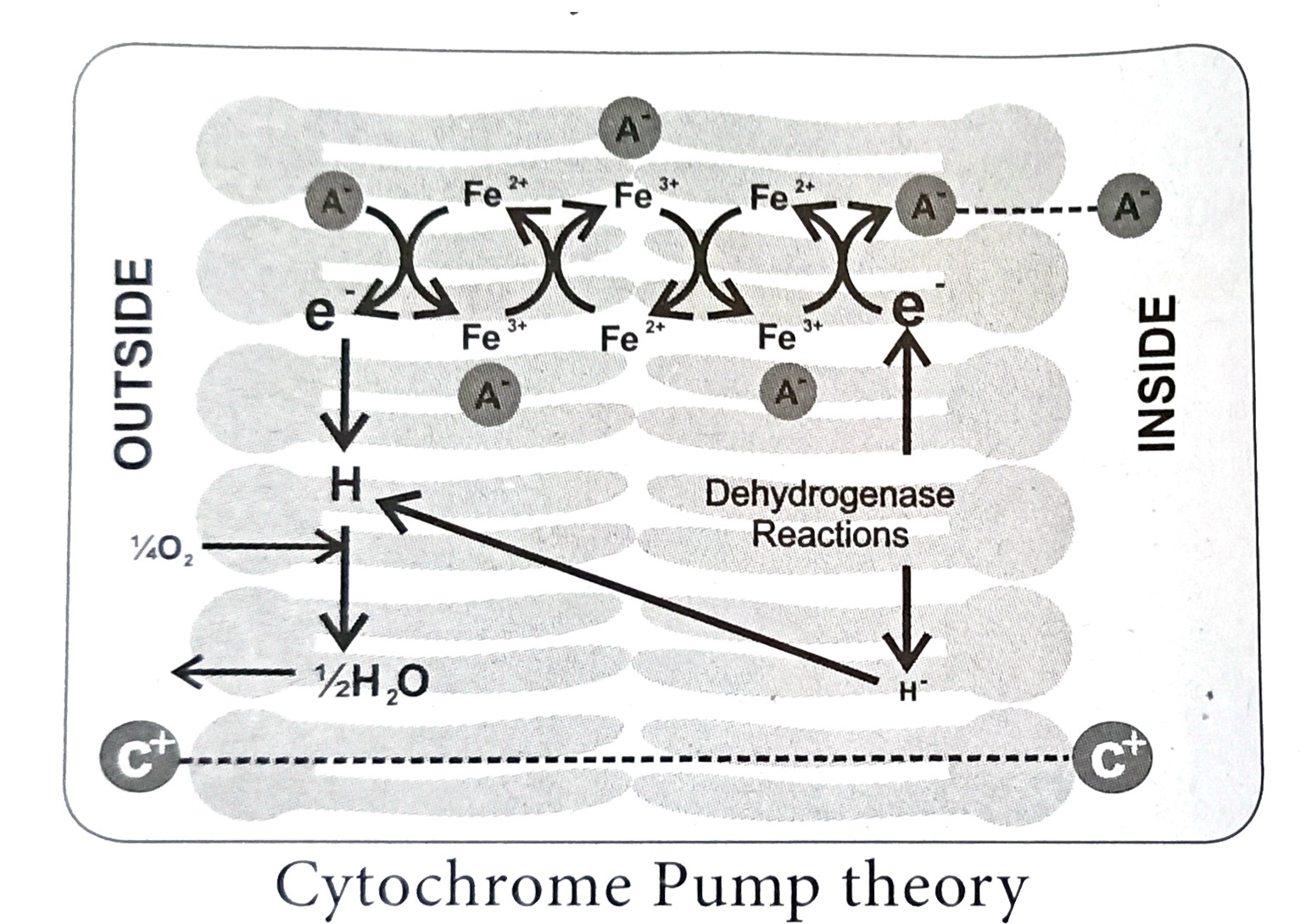Describe Lundegardh's Cytochrome Pump Theory .Solution in Tamil
Lundegardh's Cytochrome Pump Theory:
Lundegardh and Burstrom (1933) observed a correlation between respiration and anion absorption. When a plant is transferred from water to a salt solution the rate of respiration increases which is called as anion respiration or salt respiration. Based on this observation Lundegardh (1950 and 1954) proposed cytochrome pump theory which is based on the following assumptions:
i. The mechanism of anion and cation absorption are different.
ii. Anions are absorbed through cytochrome chain by an active process, cations are absorbed passively.
iii. An oxygen gradient responsible for oxidation at the outer surface of the membrane and reduction at the inner surface.
According to this theory, the enzyme dehydrogenase on inner surface is responsible for the formation of protons (H+) and electrons (e−). As electrons pass outward through electron transport chain there is a corresponding inward passage of anions. Anions are picked up by oxidized cytochrome oxidase and are transferred to other members of chain as they transfer the electron to the next component.
The theory assumes that cations (C+) move passively along the electrical gradient created by the accumulation of anions (A−) at the inner surface of the membrane.
Main defects of the above theory are:
(i) Cations also induce respiration.
(ii) Fails to explain the selective uptake of ions.
(iii) It explains absorption of anions only.

Topper's Solved these Questions
- BOOK - FULL MARKSCHAPTER - TRANSPORT IN PLANTS EXERCISE - Additional Questions Solved (V). Higher Order Thinking Skills (HOTs))6videos
TRANSPORT IN PLANTS
- BOOK - FULL MARKSCHAPTER - TRANSPORT IN PLANTS EXERCISE - Additional Questions Solved (III. Short Answer Type Questions)25videos
TRANSPORT IN PLANTS
- BOOK - FULL MARKSCHAPTER - TISSUE LEVEL OF ORGANISATION EXERCISE - ADDITIONAL QUESTIONS SOLVED (II. ANSWER THE FOLLOWING QUESTIONS)17videos
TISSUE LEVEL OF ORGANISATION
- BOOK - FULL MARKSCHAPTER - TRENDS IN ECONOMIC ZOOLOGYEXERCISE - Additional Questions Solved ( Answer the following questions.)99videos
TRENDS IN ECONOMIC ZOOLOGY
Similar Questions
Why during rainy seasons, the wooden doors and windows are difficult to closs and open ? Give the phenomenon behind this and also define the phenomenon.
04:41View SolutionDraw a Flow Chart illustrating various types of cell to cell transport .
02:14View SolutionDefine tissues .
03:57View SolutionWhat is Economic Zoology?
02:03View SolutionAccording to potassium pump theory of Levitt
02:46View SolutionAccording to cytochrome pump theory the anions and cations are transported by _______ .
01:40View SolutionExplain cytochrome pump theory ?
02:12View Solutionসক্রিয় পরিবহনে প্রোটিন পাম্প এর ভূমিকা বর্ণনা করো।
02:26View SolutionDescribe Lundegardh's Cytochrome Pump Theory .
02:18View SolutionRelay pump theory of Godlewski was proved in the year
02:25View SolutionRelay pump theory was put forth by ........... .
02:00View SolutionState Relay Pump theory.
02:51View Solutionரிலே பம்ப் கோட்பாட்டை முன்வைத்தார்
01:40View SolutionExplains the proton-potassium pump theory.
04:10View SolutionWho proposed relay pump theory of the ascent of sap ?
05:00View Solution

